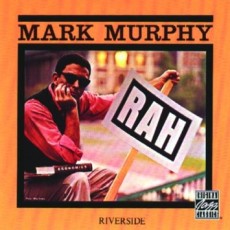
Daily Dose Of Jazz…
Mark Murphy was born on March 14, 1932 in Syracuse, New York and raised in a musical family, his parents having met as members of the local Methodist Church choir. He grew up in the nearby small town of Fulton where his grandmother and then his aunt were the church organists. Opera was also popular in the house and he started piano lessons at the age of seven.
Murphy joined his brother’s jazz dance band as the singer when a teenager. His influences were Nat King Cole, June Christy, Anita O’Day, Ella Fitzgerald and Art Tatum. Graduating from Syracuse University in 1953, majoring in Music and Drama, university life included performing on campus and clubs playing piano and singing.
In 1954, Murphy moved to New York City working part-time as an actor and singer. He appeared in productions for the Gilbert and Sullivan Light Opera Company, musical TV version of Casey at the Bat and twice took second place at the Apollo Theater amateur contests.
Mark’s debut recording was Meet Mark Murphy in 1956, followed closely by Let Yourself Go in ’57. In 1958 Murphy moved to Los Angeles and recorded for Capitol, but returned to New York in the early ’60s and recorded the album Rah! in 1961 for Riverside Records. By 1963, he hit the charts with his single of “Fly Me To The Moon” and was voted New Star of the Year in Down Beat Magazine’s Reader’s Poll.
The late 1960s saw Murphy moving to London, England where he worked primarily as an actor but continued to cultivate his jazz audiences in Europe. He returned to the States in 1972 and began recording an average of an album a year for more than fourteen years on the Muse label including a two volume Nat King Cole Songbook, Bop For Kerouac, Living Room, Beauty and the Beast and Stolen Moments, in which he peened lyrics to the Oliver Nelson tune. He received critical acclaim and numerous Grammy nominations.
In 1984 together with Viva Brasil he recorded the album Brazil Song (Cancões do Brasil) that featured original material by Antonio Carlos Jobim and Milton Nascimento. In 1987, Mark recorded Night Mood, an album of songs by Brazilian composer Ivan Lins, appeared on U.F.O.’s last two releases in which he has written and rapped lyrics on songs composed with the group and opened up further new audiences in the acid-jazz and hip-hop genres demonstrating jazz’s timelessness while transcending generations and styles.
Through the Nineties and into the new millennium he released Song For The Geese, Once to Every Heart, Love is What Stays and Never Let Me Go. Mark collaborated with Finish jazz band Five Corners Quintet and released a tribute EP to Shirley Horn titled Beautiful Friendship. He has guested on recordings with Madeline Eastman, Gill Manly,Guillaume de Chassy, Daniel Yvinec, Till Brönner, Pete and Conte Candoli and has amassed a catalogue of more than forty albums as a leader. Vocalist Mark Murphy has continued to tour internationally into his 80s, appearing at festivals, concerts, in jazz clubs and television until his passing on October 22, 2015 in Englewood, New Jersey.
More Posts: vocal
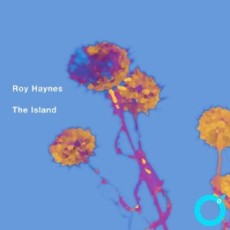
Daily Dose Of Jazz…
Roy Haynes was born in Boston, Massachusetts on March 13, 1925, and was keenly interested in jazz ever since he can remember. Primarily self-taught, he began to work locally in 1942 with musicians like guitarist Tom Brown, bandleader Sabby Lewis, and Kansas City blues-shout alto saxophonist Pete Brown. In the summer of 1945 he got a call to join bandleader Luis Russell to play for the dancers at New York’s Savoy Ballroom. When not traveling with Russell, the young drummer spent much time on Manhattan’s 52nd Street and uptown in Minton’s, the incubator of bebop.
From 1947 to 1949 Haynes was Lester Young’s drummer, worked with Bud Powell and Miles Davis in ’49, became Charlie Parker’s drummer of choice from 1949 to 1953, toured the world with Sarah Vaughan from 1954 to 1959, did numerous extended gigs with Thelonious Monk in 1959-60. Through the Sixties he performed and recorded with Eric Dolphy, Stan Getz, John Coltrane, has collaborated with Chick Corea since 1968, and with Pat Metheny during the ’90s. He’s been an active bandleader from the late ’50s to the present, featuring on his recordings Phineas Newborn, Booker Ervin, Roland Kirk, George Adams, Hannibal Marvin Peterson, Ralph Moore and Donald Harrison to name a few.
A perpetual top three drummer in the Downbeat Readers Poll Awards, he won the Best Drummer honors in 1996 (and many years since), and in that year received the prestigious French Chevalier des l’Ordres Artes et des Lettres and in 2002 his album “Birds Od A Feather” was nominated for a Grammy. Roy Haynes, percussionist, composer and bandleader nicknamed Snap Crackle, continues to compose, performer, record and tour.
More Posts: drums,percussion
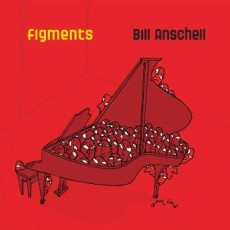
Daily Dose Of Jazz…
Bill Anschell was born on March 12, 1959 in Seattle, Washington and after leaving high school he went on to study for two years at Oberlin College, then transferring to Wesleyan University in Connecticut, where he graduated Phi Beta Kappa with a degree in Music. At Wesleyan, he worked closely with saxophonist Bill Barron and studied semi-privately with South Indian mridangum master T Ranganathan, kindling a passion for rhythmic experimentation that has driven his music ever since.
After leading the life of a jazz vagabond for several years, Bill settled in Atlanta in 1989. He was initially drawn there by the opportunity to serve as Jazz Coordinator for the Southern Arts Federation (SAF), that he fired up virtually from scratch. He launched a host of high-profile programs, published a book on grant writing, and created “JazzSouth,” an internationally syndicated radio show. At night he dove headlong into the city’s thriving jazz scene, working as a sideman with various groups and leading his own trio.
By 1992, Anschell’s left SAF, continuing to produce “JazzSouth” out of his home while focusing on playing and composing. Ascended the jazz ranks he led his trio at major festivals, became a first-call accompanist for visiting jazz greats and enjoyed a lengthy association with vocalist Nnenna Freelon, serving as her pianist, arranger and musical director. His piano work and arrangements were featured throughout Freelon’s 1996 Concord release “Shaking Free,” nominated for a Grammy as the year’s best jazz vocal recording.
Bill has played and/or recorded with a host of jazz greats including Richard Davis, Ron Carter, Benny Golsen and Russell Malone. In 2001, he was selected by the American Composers Forum for its “Composer-in-the-Schools” program; his residency included a commissioned piece for chamber orchestra. Since 2003, his original compositions have been heard on NBC’s “The West Wing,” CBS’s “The Defenders” and “NCIS: LA,” and HBO’s “The Wire.”
He has performed with the symphony, ventured into electronica, is well-known as a jazz humorist, writing jazz vignettes and a monthly jazz etiquette column. His satirical essay, “Careers in Jazz,” is the all-time most-read piece on leading jazz website allaboutjazz.com, and was prominently featured in a Wall Street Journal story on jazz audiences. He has won numerous awards such as 2005 Northwest Jazz Instrumentalist of the Year 2006 & 2001; Northwest Acoustic Jazz Ensemble of the Year (Bill Anschell Trio) 2010 and Northwest Jazz Recording of the Year for his 2011 “Figments”. He continues to perform, tour and record.
More Posts: piano
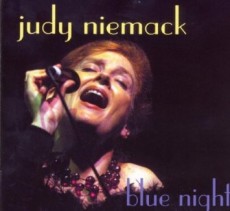
Daily Dose Of Jazz…
Judy Niemack was born on March 11, 1954 in Pasadena, California and started singing in a church choir from age seven. She decided to turn professional at age 17, and soon after met Warne Marsh who encouraged her to explore jazz.
Judy studied at Pasadena City College and later at the New England Conservatory of Music followed by her matriculating through the Cleveland Institute of Music.
Niemack released her debut album By Heart in 1977 and has since recorded eleven albums under her own name. She has toured Europe and has worked with Toots Thielemans, James Moody, Lee Konitz, Clark Terry, Kenny Barron, Fred Hersch, Kenny Werner, Joe Lovano, Eddie Gomez and the Widespread Depression Jazz Orchestra.
As an educator vocalist Judy Niemack teaches music has authored two books titled “Jazz Vocal Standards”, an introduction to singing and vocal improvisation and “Hear It, Sing It” that explores modal jazz. She continues performing and recording.
More Posts: vocal
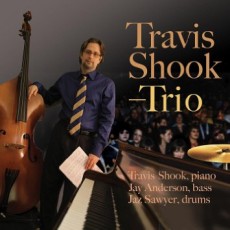
Daily Dose Of Jazz…
Travis Shook was born on March 10, 1969 in Oroville, California and started learning to play the piano at age seven. His family moved to Olympia, Washington when he was ten, spending his adolescent years in the Pacific Northwest. For a period of time he played rock guitar but soon realized jazz improvisation was his passion. At eighteen he enrolled at William Patterson College and studied under Mabern. After graduating he returned to Washington and joined bassist Buddy Catlett’s band where he learned a lot about the history of jazz.
In 1991 he won the Jacksonville Festival’s Great American Piano Competition that led to a contract with Columbia Records/Sony Music. Two years later he moved to New York City and recorded his debut with a quartet that included tony Williams and Bunky Green. Though receiving critical acclaim both in the U.S. and France for this first effort, it was a short-lived relationship when Sony purged a large percentage of the Columbia jazz roster upon acquiring the label in 1993.
After spending some time in obscurity after being attacked by New York Times critic Peter Watrous who criticized one of his performances, he entered a dark period in his life: alcoholism. A year later he got picked up by Betty Carter and went on tour through Europe, but he sunk deeper and added drugs to his plate of demons. Unemployable, he dropped out of the public eye for a number of years. Travis met, moved in with and ultimately married jazz singer Veronica Nunn who helped him overcome his demons and since 1998 he has been sober.
In 1999 Shook and his wife started their own record label, Dead Horse Records, which has released four recordings to date. Over the years he has performed with Reggie Workman, Eddie Harris, Joe Lovano, toots Thielemans, Rufus Reid, Chuck Israels, Ernestine Anderson, Branford Marsalis, Benny Golson and Clifford Jordan as well as Sonny Simmons, Michael Franks, Gino Vanelli, Bob Hope and Chris Botti among others.
His influences were Ahmad Jamal, McCoy Tyner, Duke Ellington, Harold Mabern, Herbie Hancock and Bill Evans but also John Coltrane, Miles Davis and Elvin Jones.Pianist Travis Shook continues to perform and record while building the catalogue of Dead Horse Records.
More Posts: piano


